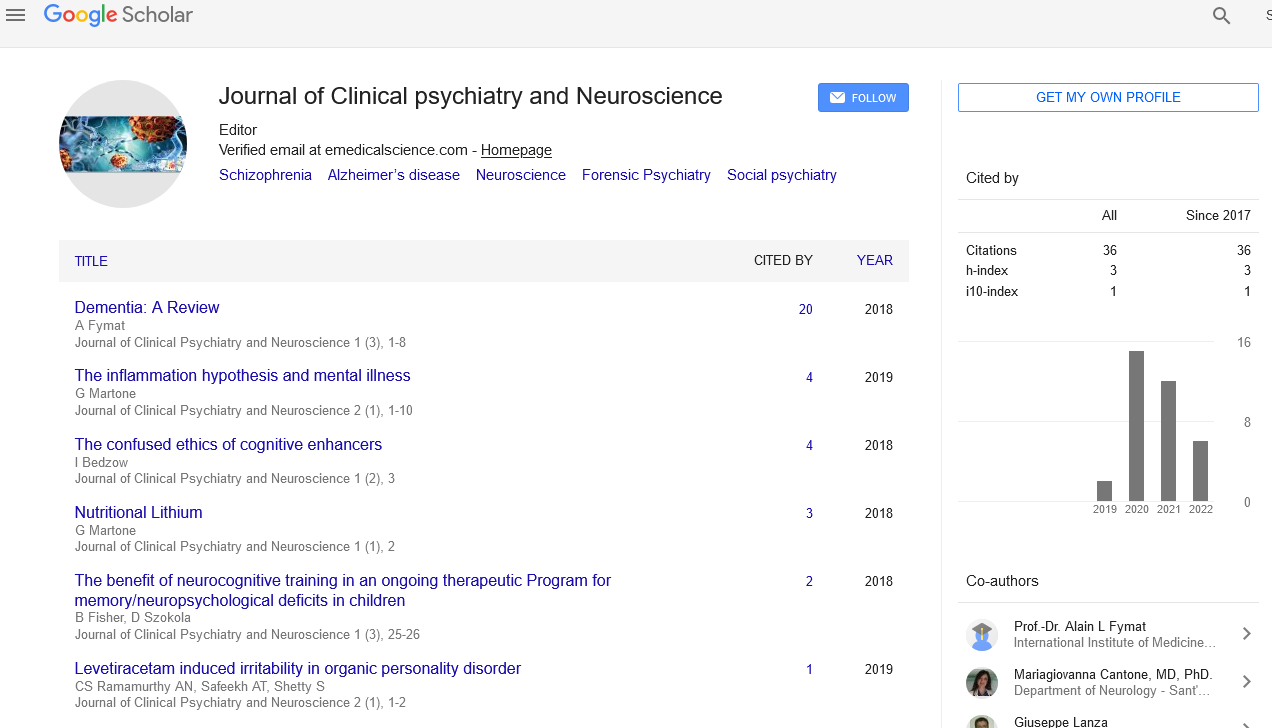
Sign up for email alert when new content gets added: Sign up
Association of dietary patterns with mild cognitive impairment and dementia in the elderly: Findings of the Fujiwara-Kyo study
Joint Event on 2nd World Congress on ADVANCES IN ADDICTION SCIENCE AND MEDICINE & 10th International Conference on DEMENTIA AND DEMENTIA CARE
July 24-25, 2019 | Rome, Italy
Nobuko Amano, Tomiyo Nakamura
Konan Women’s University, Japan
Ryukoku University, Japan
ScientificTracks Abstracts: J Clin Psychiatr Neurosci
Abstract :
Background: Aging is associated with cognitive decline, and the elderly can experience Mild Cognitive Impairment (MCI) before the onset of dementia. Ensuring healthy dietary patterns can be important for preventing dementia, but such information is limited in Japan. Here, we thus investigated the relationship between dietary patterns and cognitive decline, especially MCI, in the Japanese elderly.
Methods: This cross-sectional study included 3,136 community-dwelling people aged 65 years and over who participated in a prospective cohort study, titled “Fujiwara-kyo Study”. Food frequency was recorded for 1 week, and dietary patterns were extracted using factor analysis. The Mini-Mental State Examination (MMSE) was used to evaluate the cognitive function of the participants and to classify them with dementia or MCI.
Results: Four dietary patterns were identified: the “healthy Japanese diet”, “dairy products”, “confectioneries and fruits”, and “meat-based diet” patterns. The “healthy Japanese diet” pattern, characterized by a high intake of soy products, seaweeds, fish, vegetables, and rice, was found to reduce the presence of dementia. The “dairy products” pattern, characterized by a high intake of milk and dairy products as well as bread but a lower intake of rice, reduced the presence of MCI and dementia. The “confectioneries and fruits” pattern, which comprised a higher intake of confectioneries and fruits, but a lower intake of pasta, noodles, and alcoholic beverages, reduced the presence of dementia only in females. The “meat-based diet” pattern, characterized by a high intake of meat and eggs, reduced the presence of MCI, but only in males.
Conclusions: In this cross-sectional study, the “dairy products pattern” was inversely associated with the presence of MCI in both males and females. The “meat-based diet” pattern was inversely associated with the presence of MCI only in males, probably due to malnutrition effects. Further investigations at the nutrient level are needed to confirm these findings.
Biography :
Nobuko Amano, Associate Professor of Department of Clinical Nutrition and Dietetics, Faculty of Clinical Nutrition and Dietetics, Konan Women’s University, Japan, and received her Bachelor's degree from the Doshisha Women's College of Liberal Arts in 1975. After graduating from the College, worked as a registered dietitian at public health center in Nara. Since 1997, she belongs to the university that she develops registered dietitians and continues his research on nutritional epidemiology. She has received research encouragement prize from the Japan Dietetic Association in 2010, and the Japan Dietician Training Facility Society in 2015.She became the core researcher of the cohort study for 4,500 elderly people in Nara Medical University from 2006 (Fujiwara-kyo study) and began to study the relationship between dementia and nutrition. She obtained her Ph.D. degree from the Nara Medical University Graduate School of Medicine in 2007.
E-mail: amano@konan-wu.ac




